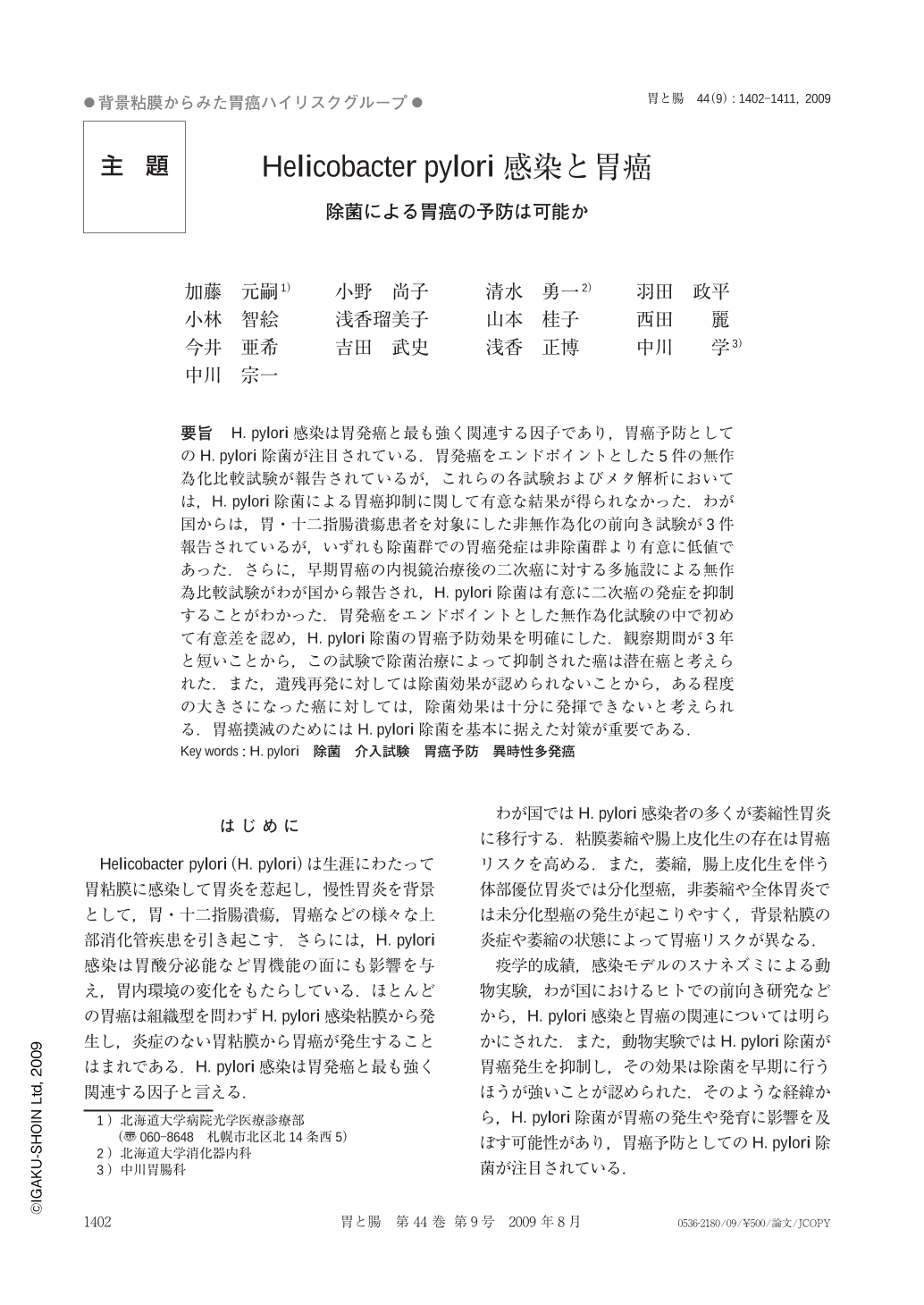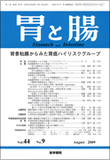Japanese
English
- 有料閲覧
- Abstract 文献概要
- 1ページ目 Look Inside
- 参考文献 Reference
- サイト内被引用 Cited by
要旨 H. pylori感染は胃発癌と最も強く関連する因子であり,胃癌予防としてのH. pylori除菌が注目されている.胃発癌をエンドポイントとした5件の無作為化比較試験が報告されているが,これらの各試験およびメタ解析においては,H. pylori除菌による胃癌抑制に関して有意な結果が得られなかった.わが国からは,胃・十二指腸潰瘍患者を対象にした非無作為化の前向き試験が3件報告されているが,いずれも除菌群での胃癌発症は非除菌群より有意に低値であった.さらに,早期胃癌の内視鏡治療後の二次癌に対する多施設による無作為比較試験がわが国から報告され,H. pylori除菌は有意に二次癌の発症を抑制することがわかった.胃発癌をエンドポイントとした無作為化試験の中で初めて有意差を認め,H. pylori除菌の胃癌予防効果を明確にした.観察期間が3年と短いことから,この試験で除菌治療によって抑制された癌は潜在癌と考えられた.また,遺残再発に対しては除菌効果が認められないことから,ある程度の大きさになった癌に対しては,除菌効果は十分に発揮できないと考えられる.胃癌撲滅のためにはH. pylori除菌を基本に据えた対策が重要である.
Since H. pylori infection plays an important role in the carcinogenesis of gastric cancer, H. pylori eradication should have the possibility to reduce incidence of gastric cancer. Although five randomized controlled studies with gastric canser incidence as endpoint were reported, analysis and meta-analysis of the five studies showed that H. pylori eradication had no significant preventive effect for gastric cancer. However, three non-randomized interventional studies for Japanese patients with gastroduodenal ulcer showed that successful eradication of H. pylori significantly reduced gastric cancer incidence. Multi-center randomized controlled study in Japan showed that eradication of H. pylori had inhibitory effects on the development of metachronous gastric carcinomas after endoscopic resection. This is the first evidence that H. pylori eradication prevents development of gastric cancer. This study suggests that H. pylori eradication decreases the growth speed of occult cancer to such an extent that its incidence is no different to that produced by residual cancer after incomplete resection. Preventive effect probably depends on the cancer volume. New strategy including H. pylori treatment is necessary to eliminate gastric cancer from Japan.

Copyright © 2009, Igaku-Shoin Ltd. All rights reserved.


